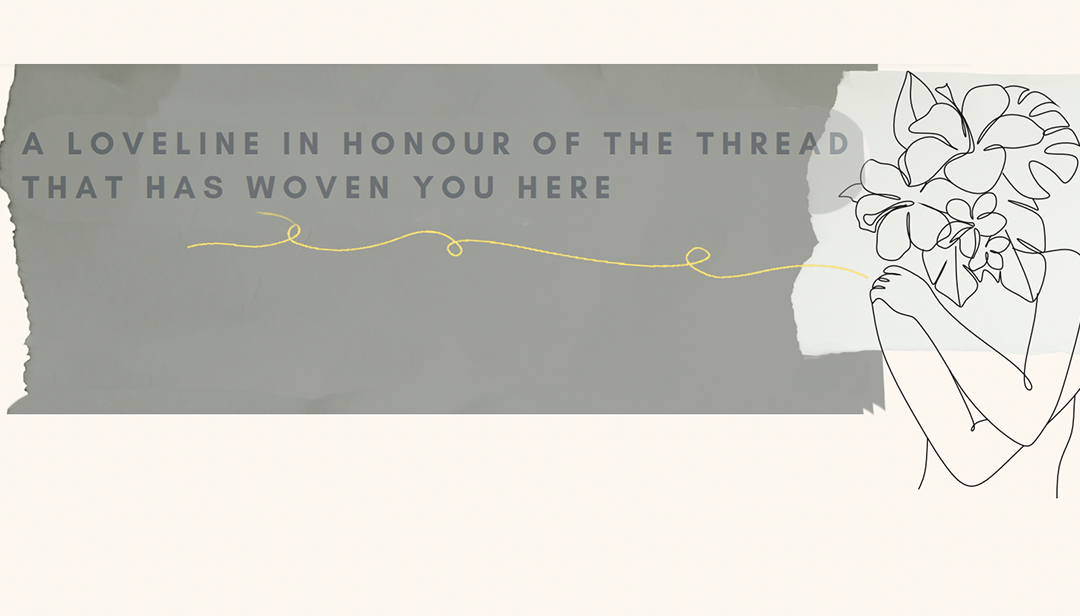
A Loveline to Celebrate the Thread That Has Woven You Here
A Loveline to Celebrate the Thread That Has Woven You Here
Today is my first birthday without my mother.
I don’t know quite what that means.
She began me and now I am finished in all the ways I know myself as her child.
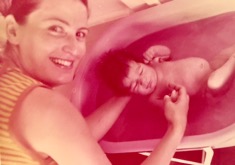
She was always a quiet force of devotion, gravity and governance and in the months since she left, I have had to seek these strengths within. Without her, I am all alone inside myself. No-one and nothing stands between me and the winds and waves of life.
Today I am 55 – two years older than my father’s mother Chaya was when she died. She’d been living with cardiac failure for five incapacitating years, her great gentle heart collapsing ventricle by ventricle when her sister, brother in law and nephew were killed in the concentration camps.
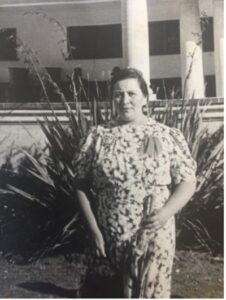
‘It’s no good,’ she told my father from her hospital bed. Since thirteen, he has carried the burden of that mantra as heavy as any cross. It has been my task to unshoulder it so my children don’t become sherpas of that darkness.
My father needed her to leave him with a blessing. But terrified and literally heartbroken, knowing she was going to die, she could find no ‘good’ to balance the ‘no good.’
In this year of grieving, I have wondered if it’s possible to hold onto beneficence, even in times of agony and hopelessness.
Yeats’ poem, ‘My Fiftieth Year’ offers illumination:
My fiftieth year had come and gone,
I sat, a solitary man,
In a crowded London shop,
An open book and empty cup
On the marble table-top.
While on the shop and street I gazed
My body of a sudden blazed;
And twenty minutes more or less
It seemed, so great my happiness,
That I was blessed and could bless.”
To bless others, we must first feel blessed.

Joanne Fedler
Author, writing mentor, retreat leader. I’m an internationally bestselling author of nine books, inspirational speaker and writing mentor. I’ve had books published in just about every genre- fiction, non-fiction, self-help, memoir – by some of the top publishing houses in the world. My books have sold over 650 000 copies and have been translated in a range of languages. Two of my books have been #1 Amazon bestsellers, and at one point the German edition of Secret Mothers’ Business outsold Harry Potter- crazy, right?
If we relegate this to circumstance, we are at the mercy of outside forces, prisoners of situation, reliant on fairy godmothers and other such fickle tricksters. We wait, like Rapunzel in the tower for someone to come save us with hope or at least an escape route.
We have more power than that.
‘Being blessed’ is, I believe, a narrative choice. It is a love story we tell about our lives.
It’s how we unpick our ‘dharma,’ or our true calling from the muddle of our experiences and discern the ways we have lived in service to Life – beyond the transactions of hand-to-mouth, nine-to-five, quid pro quo. The ways in which have we handed over and passed on all we have, all we know, all we are capable of, is the deep story of who we are. Not what we do. Not what we earn. Not our roles, genders, achievements or failures.
There is a bright vein that pulses through circumstances, of how life has woven itself through you.
There’s a thread you follow. It goes among
things that change. But it doesn’t change.
People wonder about what you are pursuing.
You have to explain about the thread.
But it is hard for others to see.
While you hold it you can’t get lost.
Tragedies happen; people get hurt
or die; and you suffer and get old.
Nothing you do can stop time’s unfolding.
You don’t ever let go of the thread.
William Stafford
Here is my loveline:
And here is a template for you to build your own:
How to turn this exercise into a blessing:
- Come to it as a ritual (set aside time, light a candle, put on music, lenghten your outbreath, summon deep insight);
- Pick a theme (creativity, relationships, music, writing, belonging, homes);
- Build the loveline through years and time with words and images;
- Remember what you have forgotten – the mistakes, losses and pain as well as the ‘successes’;
- Give your loveline a name, like The Making of a Mermaid; Thirty Ways I Let Go; Who I Became Because of Chocolate;
- Pass the template on to others.
If this inspires you to want to explore your loveline with greater attention, my course 7 Tricks to Writing Your Story is a perfect vehicle for this. And just for the month of September, I’ve lowered it to $54.45 which is 55% off the usual cost of the course with the voucher code JOIS55 – to make this an easy gift to give yourself.
May the thread that has woven you here, find you.

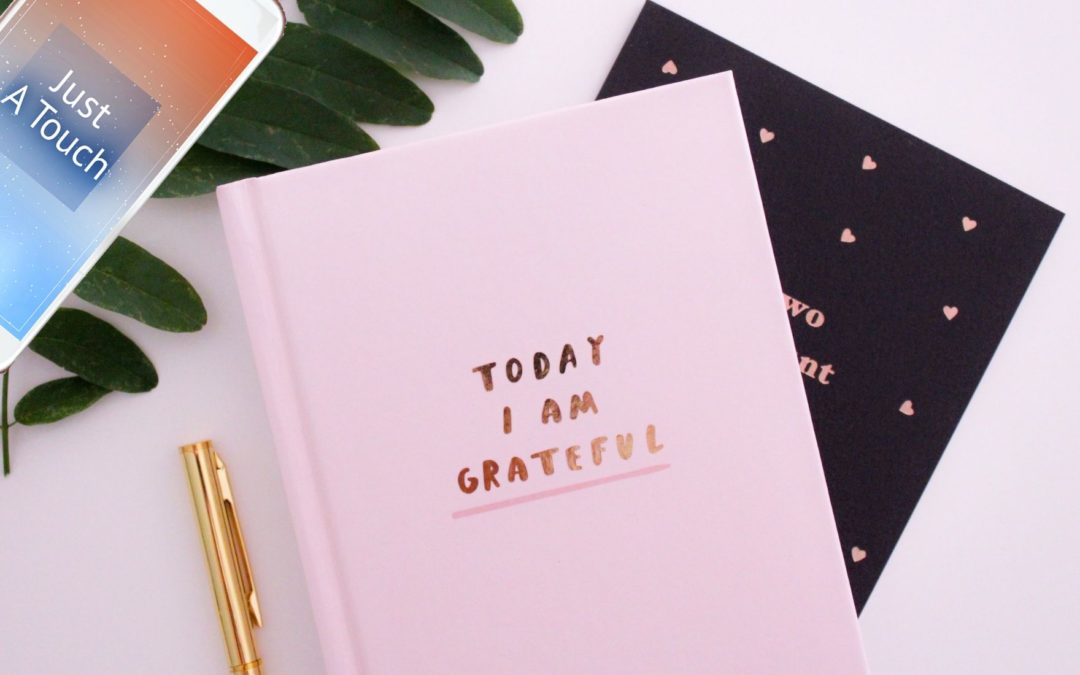
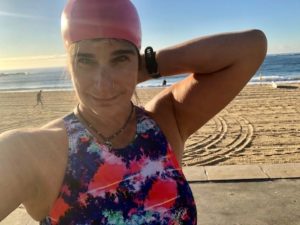 2019 has also been the year when we’ve finally woke up to what’s happening on our planet.
2019 has also been the year when we’ve finally woke up to what’s happening on our planet. 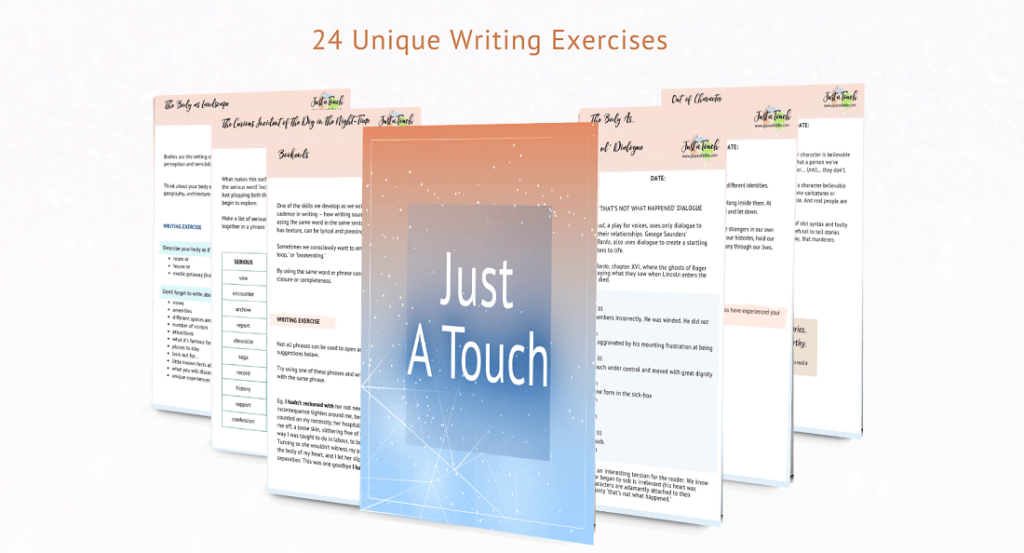
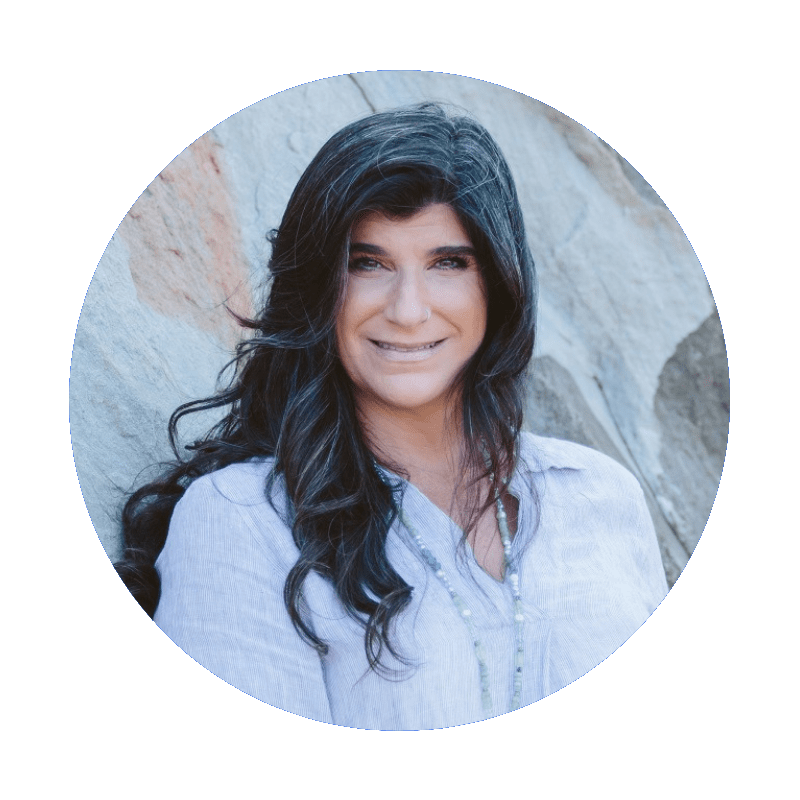
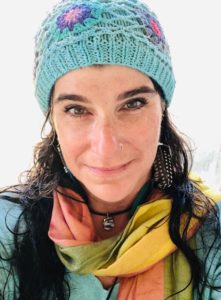





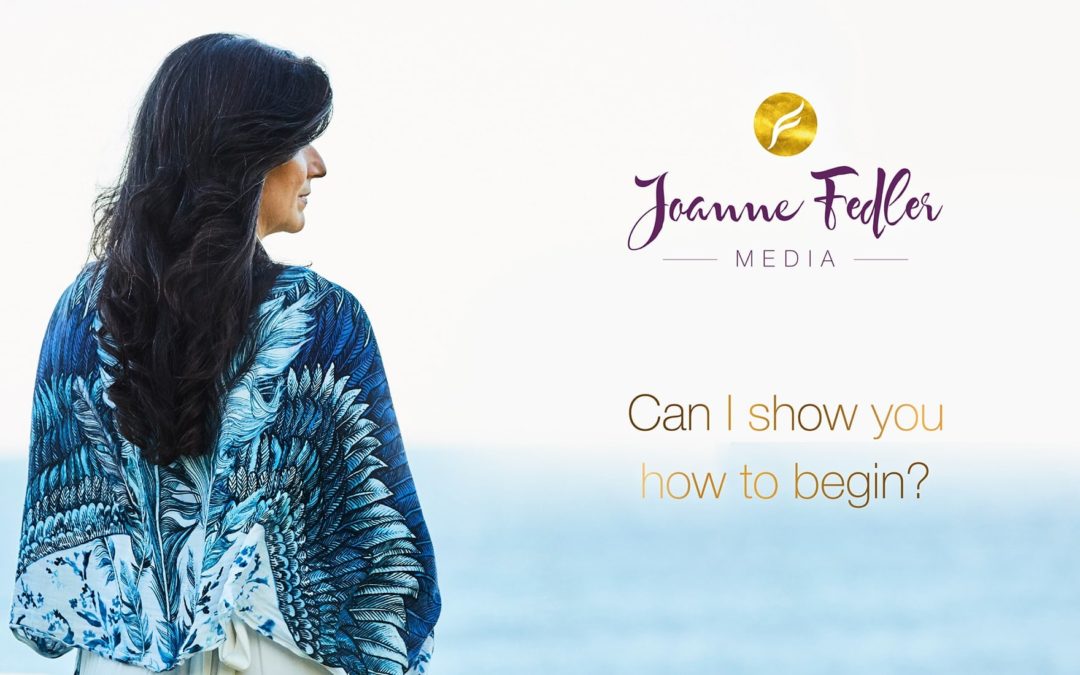
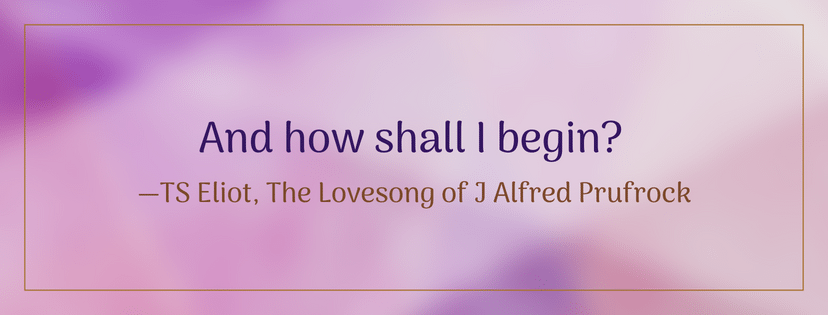
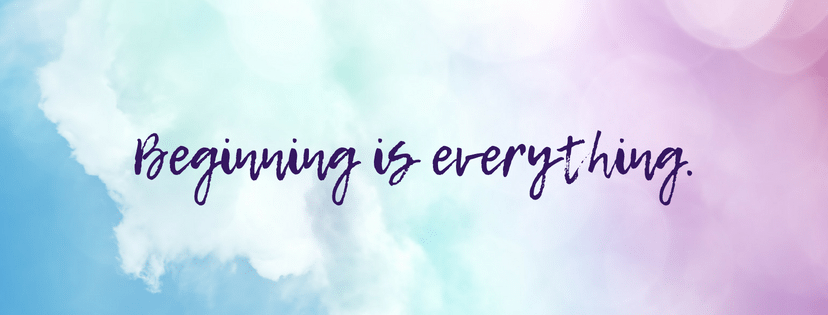
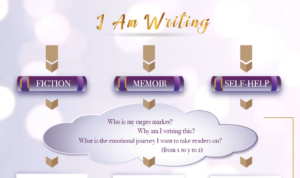 Below, you’ll find a map – an infographic – which will ask you to identify whether you’re working on fiction, memoir or self-help and will then guide you to the essential questions you need to tackle as a starting point for each one.
Below, you’ll find a map – an infographic – which will ask you to identify whether you’re working on fiction, memoir or self-help and will then guide you to the essential questions you need to tackle as a starting point for each one.